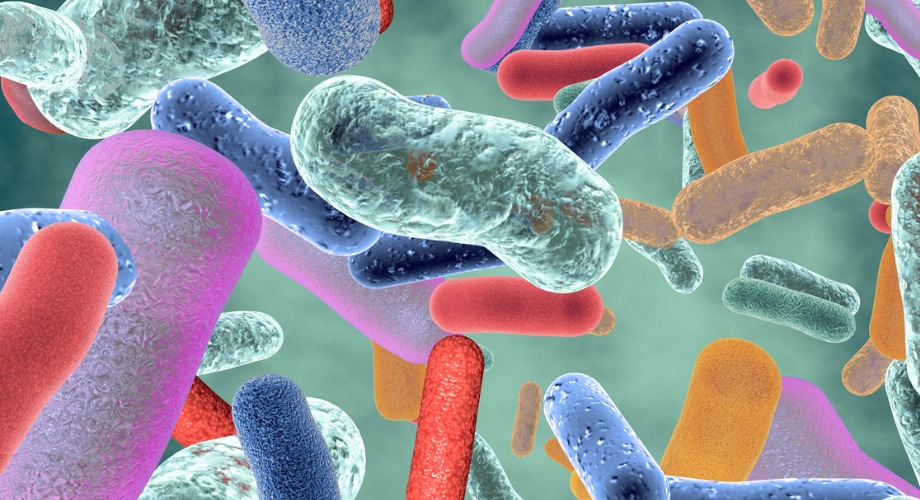Gut Microbiome Composition Possibly Altered By SARS-CoV-2 Resulting In Increase Of IL-18, A Pro-inflammatory Cytokine In COVID-19 Patients
Source: Gut Microbiome and COVID-19 Aug 19, 2020 5 years, 6 months, 1 week, 1 day, 14 hours, 59 minutes ago
Gut Microbiome and COVID-19:Researchers from Heifei, China in a new study claim that the intestinal microbiome of human hosts are altered as a result of the SARS-CoV-2 infection, resulting in the increased production of IL-18, a pro-inflammatory cytokine in COVID-19 patients, causing inflammatory conditions and cytokine storms that can lead to severe disease progression.

The study findings were published on a preprint server and are yet to have been peer-reviewed.
https://www.medrxiv.org/content/10.1101/2020.08.12.20173781v1
Numerous studies have already shown that the SARS-CoV-2 coronavirus also infects intestinal tissue. This has been shown by experimental infection of human intestinal organoids, as well as the high incidence of gut-related symptoms in COVID-19 patients.
Furthermore, viral RNA has been found in feces for over 30 days, as well as infectious virus particles. The importance of the gut in interactions between the body and the vast world of pathogenic and symbiotic microbes is unquestioned.
It is already a known fact that the gut itself harbors a body of microbes called the gut microbiota, which is vital in many body functions such as immune regulation.
Typically an unbalanced gut microbiome is associated with many inflammatory conditions. Hence this further supports that infection with the SARC-CoV-2 virus could lead to abnormal inflammatory reactions that worsen the symptoms of COVID-19.
The study team comprising of scientist from various labs, medical universities and research institutes in Heifei-China looked at IL-18, a pro-inflammatory cytokine secreted by various intestinal cells such as the intestinal epithelium, immune cells, and enteric neurons.
It was observed that the levels of this cytokine are higher than normal in COVID-19 patients.
The study team also examined IgA levels, since this is the dominant mucosal immunoglobulin. It is also the most abundant immunoglobulin in humans, produced at 40–60 mg kg−1 day−1, which exceeds the total output of all other immunoglobulins put together. Moreover, the intestinal lamina propria has 8 of every 10 plasma cells in the body.
Already another past research reported the association of specific anti-SARS-CoV-2 IgA levels with COVID-19 severity.
This new study further extends and confirms this finding, examining how gut microbiota is altered in this condition and how it is correlated with IL-18 and specific anti-SARS-CoV-2 IgA.
The research included 62 COVID-19 patients, 33 with seasonal influenza, and 40 healthy controls. All patients gave fecal and serum samples, which were sequenced.
Significantly analysis of the processed sequences showed that the gut microbiota in these COVID-19 patients was less diverse than for the patients in the other two. They were also less abundant. The researchers found that the genera Streptococcus, Clostridium, Lactobacillus, and Bifidobacterium were over-represented, and the genera Bacteroidetes, Roseburia, Faecalibacterium, Coprococcus, and Parabacteroides were fewer, relative to healthy controls.
Interestingly when compared to seasonal influenza patients, m
embers of the genera Streptococcus, Veillonella, Fusobacterium, Clostridium, Bifidobacterium, and Escherichia were increased, but the genera Parabacteroides and Sutterella were underrepresented in COVID-19 patients.
The study team concluded, "The increased abundance of Streptococcus in COVID-19 patients was indicative of the risk of infection by opportunistic pathogenic bacteria in this group."
The study team also discovered that IgA targeting the viral spike protein was significantly elevated in COVID-19 vs. controls. It is known that viral gut infections induce IgA production.
Combined, these indicate that the virus causes mucosal infection. However, fecal samples failed to show significant differences in specific IgA levels, which indicates the mucosal infection probably occurred in the respiratory tract and not the gut.
As it was observed that the viral infection of the gut also enhances IL-18, a pro-inflammatory cytokine, the researchers analyzed the levels of this molecule.
The team discovered that serum and fecal samples had higher IL-18 levels in COVID-19 patients compared to the other two. The levels were higher in PCR-positive cases than other COVID-19 cases, showing that the virus-induced potent inflammation in the gut.
The study team also found that fecal IL-18 levels were higher when the genera Peptostreptococcus, Fusobacterium, and Citrobacter were more abundant.
Corresponding author, Professor Dr Shu Zhu from the CAS Centre for Excellence in Cell and Molecular Biology, University of Science and Technology of China at Heifei told Thailand Medical News, “This indicates that changes in gut microbiota composition might contribute to SARS-CoV-2-induced production of inflammatory cytokines in the intestine and potentially also to the onset of a cytokine storm."
The study team say that the changes in the composition of the gut microbiome in COVID-19 patients are apparent. In addition, there is a relative abundance of genera like Streptococcus, Clostridium, Lactobacillus, and Bifidobacterium, and lower relative levels of Bacteroidetes, Roseburia, Faecalibacterium, Coprococcus, and Parabacteroides in these patients. Thirdly, IL-18 levels in serum and feces are higher in COVID-19. None of these changes were seen in either seasonal influenza patients or controls.
In conclusion, the team states that gut microbiota dysbiosis due to SARS-CoV-2 infection may contribute to disease severity, and that IL-18 might serve as an indicator of intestinal infection in COVID-19 patients.
The study team also included an important caveat in that all the COVID-19 patients were being treated with a variety of drugs during the study period, which could be a confounding factor.
Detailed further studies are needed to rule out the impact of the antibiotics and other drugs that could have been used during the study on COVID-19 patients and their effects on the gut microbiome of these patients.
For more on
Gut Microbiome and COVID-19, keep on logging to Thailand Medical News
